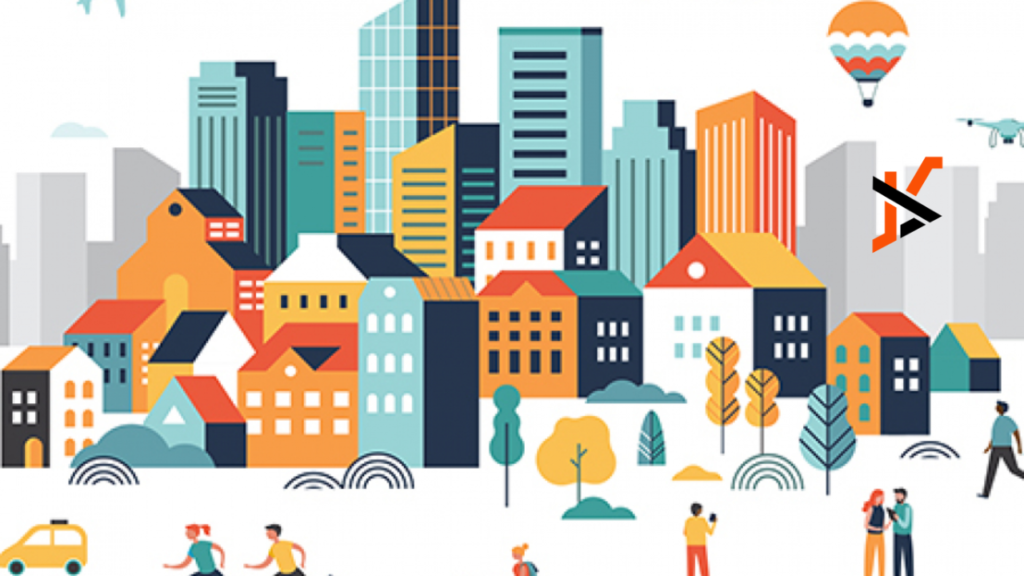Cities are evolving into lively hubs of innovation and opportunity, as is their approach to healthcare. Beyond treating diseases, urban healthcare ecosystems are increasingly focused on proactive ways to increase well-being and disease prevention. Today, cities are leveraging the potential of digital technology to build smart health solutions that address their inhabitants’ different needs.
According to a recent study by Cognizant, approximately 90% of municipal authorities globally understand the significance of including health and safety in their future-readiness action plans . This highlights the critical necessity for collaborative efforts to close the gap between goal and implementation. The advent of digital technologies and smart city innovations present a transformative opportunity for cities to revolutionize public health practices.
Now, it is time to examine how these innovative healthcare solutions can alleviate health inequities and improve well-being.
Data-Driven Health Equity Strategies
When the health equality techniques are based on big data analytics, it becomes easy to discover, understand, and address inequities in the healthcare sector. Moreover, there is availability of predictive analytics that helps healthcare practitioners in identifying patients with high risk for poor health outcomes. All this allows for proactive risk-mitigation interventions. Predictive modeling in community health management systems has been shown to reduce hospital readmissions and emergency department visits among high-risk patients.
Big data analytics can aid in resource allocation choices by finding locations with the maximum demand for innovative healthcare solutions and treatments. It enables the analysis of enormous amounts of genetic, clinical, and lifestyle data to adapt medical therapies. Health institutions and public health organizations can use data visualization tools to assess progress toward health equity goals and identify areas for improvement.
Telemedicine Revolution to Bridge Healthcare Gaps in Smart Cities
In healthcare delivery, the telemedicine revolution is the real game-changer. It employs technology to close healthcare disparities and enhance access to medical services in smart cities. It comprises a wide range of remote healthcare services like virtual consultations, remote monitoring, and telehealth platforms. All of this is made possible by advances in communication technology and digital health technologies.
Telemedicine is critical in smart cities for improving healthcare accessibility, efficiency, and efficacy. It is rapidly being utilized in emergency medical services to give fast consultations and triage decisions. This includes areas with limited access to specialized treatment.
Empowering Communities with Mobile Health Technologies
Mobile health technology empowers communities by giving them access to healthcare services without any hassle. Considering the survey of Morning Consult, 35% of individuals in the United States utilized medical mobile applications on their smartphones.
These technologies prove to be a great help for people living in remote areas. They can monitor their health by obtaining medical information and communicating with healthcare practitioners around the globe. Moreover, multiple communities (particularly those in underprivileged regions) can overcome geographical healthcare barriers and discrepancies by utilizing mobile devices. As a result, it ends up in a more inclusive and equitable healthcare system.
Geospatial Insights for Health Equity
Using mapping technology, Geospatial Insights discover health inequities in metropolitan regions. This allows smart city planners to make targeted interventions. For example, many research and surveys discovered that locations with poor access to innovative healthcare solutions had greater rates of unnecessary hospitalizations.
Smart cities can effectively distribute resources to underprivileged populations to improve healthcare access and equity. Geospatial analysis provides a data-driven approach to urban planning to ensure that health services are allocated effectively to reduce inequities and promote inclusive growth.
Community-Centered Design
Community-centered design entails actively engaging communities in the joint creation of health solutions to ensure that local needs are successfully addressed. By addressing people’s perspectives and preferences, projects become more culturally and socioeconomically relevant. This method builds trust among stakeholders and encourages communities to take control of their health. As a result, we avail fair and effective health solutions that resonate with those they serve.
Safeguarding Privacy in Smart City Health Initiatives
To safeguard privacy and boost public confidence, smart city health programs prioritize data security and trust. Strong data encryption, access restrictions, and compliance with rules such as GDPR and HIPAA are required. Transparent information regarding data usage and security measures builds confidence among citizens. Smart cities that prioritize privacy and security can reduce risks, protect sensitive health information, and enforce ethical standards, creating the groundwork for effective and trustworthy health programs and cybersecurity solutions in the digital era. For additional assistance, seeking guidance from industry experts can be a great choice. For example, Wipro’s State of Cybersecurity Report (SOCR) can provide valuable insights and a framework for enterprises to enhance their cyber resilience.
Healthcare Solutions Through Smart City Innovations
As urban populations rise and digitalization becomes more prevalent, it is critical to use smart city technologies to provide innovative healthcare solutions. Governments throughout the world are realizing the value of organized health ecosystems and leading attempts to incorporate IoT and digital technology into urban infrastructure. Cities, by serving as change facilitators and catalysts, can create a paradigm shift toward preventative and curative therapies while supporting collective healthy behavior.
While privacy issues remain, investing in smart public health projects provides considerable returns on investment while improving public health outcomes. Cities that use interoperable data to identify risks and analyze effects provide more equal access to healthcare and improved well-being for all citizens. Smart cities are positioned to improve healthcare delivery by collaborating and using creative ways, generating healthier, more resilient communities for future generations.

